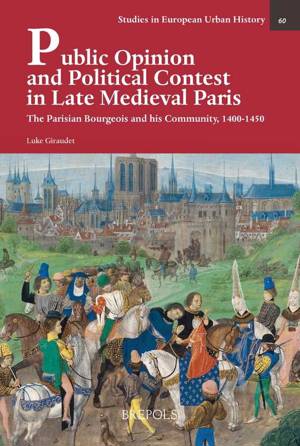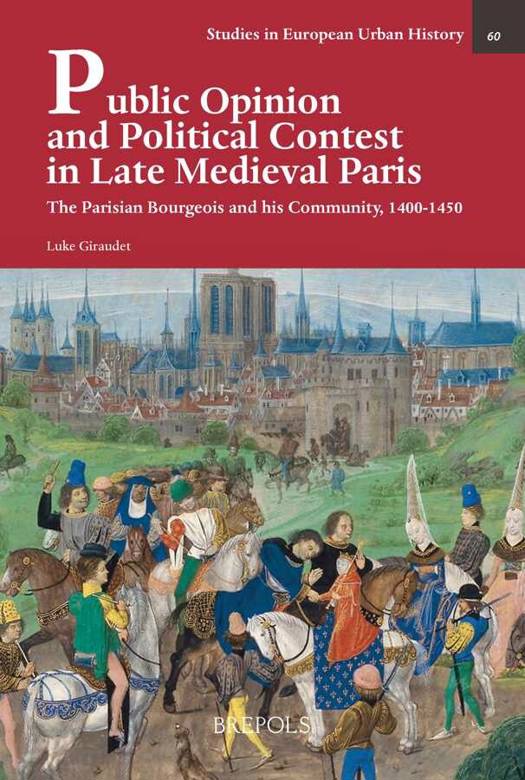
- Afhalen na 1 uur in een winkel met voorraad
- Gratis thuislevering in België vanaf € 30
- Ruim aanbod met 7 miljoen producten
- Afhalen na 1 uur in een winkel met voorraad
- Gratis thuislevering in België vanaf € 30
- Ruim aanbod met 7 miljoen producten
Zoeken
Public Opinion and Political Contest in Late Medieval Paris
The Parisian Bourgeois and His Community, 1400-1450
Luke Giraudet
Hardcover | Engels
€ 110,24
+ 220 punten
Omschrijving
Public Opinion and Political Contest presents an important historiographical intervention regarding the emergence of larger political publics during the fifteenth century, analysing political interaction and public opinion in medieval Europe's largest city through the lens of the only continuous narrative source compiled in Paris durign the early fifteenth century, the well-known Journal d'un bourgeois de Paris. Examining the most turbulent period of Paris' history, which witnessed civil conflict and English occupation, the monograph contributes substantially to understandings of late medieval popular opinion conceptually and empircially, revealing Parisian groups bound by shared idioms and assumptions engaging with supralocal movements. Analysing contemporary interpretations of official communication, protest in public space, rumour and civic ceremony, the book represents a timely mirror to themes in flux today, problematising historical conclusions that have relegated premodern societies from considerations of the public sphere. Instead, this nuanced assessment of the Journal d'un bourgeois de Paris reveals how access to informational media and forums for discussion bound Parisians and framed widespread commentary upon political issues beyond the upper echelons of medieval society.
Specificaties
Betrokkenen
- Auteur(s):
- Uitgeverij:
Inhoud
- Aantal bladzijden:
- 328
- Taal:
- Engels
Eigenschappen
- Productcode (EAN):
- 9782503593869
- Verschijningsdatum:
- 28/03/2023
- Uitvoering:
- Hardcover
- Formaat:
- Genaaid
- Afmetingen:
- 180 mm x 260 mm
- Gewicht:
- 793 g

Alleen bij Standaard Boekhandel
+ 220 punten op je klantenkaart van Standaard Boekhandel
Beoordelingen
We publiceren alleen reviews die voldoen aan de voorwaarden voor reviews. Bekijk onze voorwaarden voor reviews.











